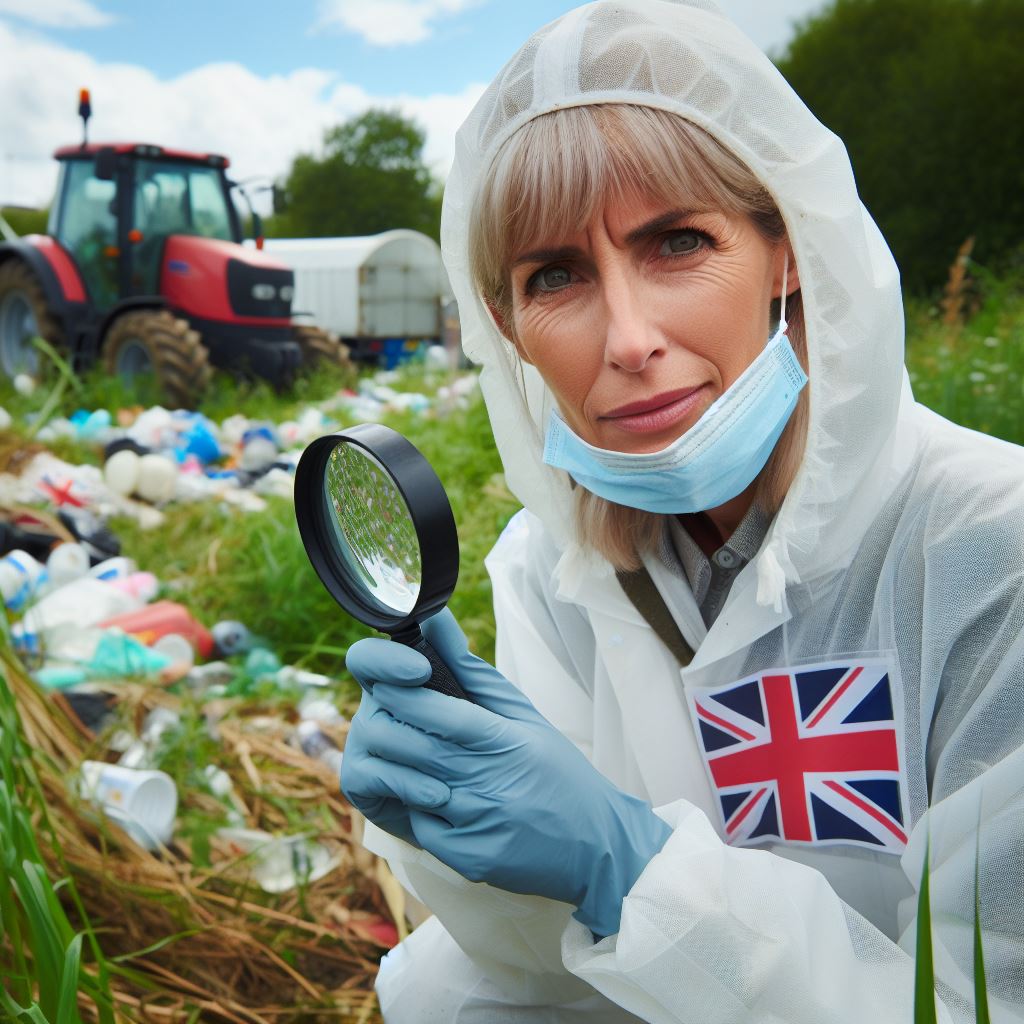Introduction
Navigating the intricate terrain of the UK’s environmental policy landscape is akin to embarking on a voyage through the intricate web of regulations, initiatives, and commitments that define the nation’s approach to environmental stewardship.
This journey goes beyond a mere exploration of legal frameworks; it is a deep dive into the very fabric of how the UK envisions and acts upon its environmental responsibilities.
Environmental policy, in its myriad forms, becomes the guiding force steering the nation toward sustainability.
From stringent emissions standards that curb pollution to ambitious conservation strategies aimed at preserving biodiversity, each policy is a pivotal building block for constructing a greener and more resilient future.
The significance of comprehending and navigating this policy landscape becomes apparent as it empowers individuals, businesses, and policymakers alike.
Informed decisions, rooted in an understanding of the policies in place, are key to achieving collective environmental goals.
Embark with us on this insightful exploration of the UK’s environmental policy framework.
Uncover the layers of regulations that shape the nation’s commitment to environmental well-being.
Discover how awareness and active engagement with these policies can foster a culture of responsibility and drive positive change in our environmental impact.
Join us in deciphering the language of policy for a sustainable tomorrow.
Overview of UK’s Environmental Policy Landscape
History of environmental policy in the UK
- The UK has a long-standing commitment to environmental protection and sustainability.
- Environmental policy in the country has evolved over the years in response to various challenges.
- In the 19th century, concerns about pollution led to the enactment of legislation for clean air and water.
- The creation of the Environmental Protection Act in 1990 marked a significant milestone in environmental policy.
- The UK’s membership in the European Union also influenced its environmental policies.
Main objectives of the UK’s environmental policies
- The primary goal is to protect and enhance the country’s natural environment and biodiversity.
- Another objective is to promote sustainable development in line with global environmental agreements.
- The UK aims to reduce greenhouse gas emissions and mitigate the impacts of climate change.
- Environmental policies also seek to improve air and water quality, as well as waste management.
- Protecting and conserving natural resources is another key objective of UK’s environmental policies.
Mention key legislation and regulations related to environmental protection
- The Environmental Protection Act 1990 provides a legal framework for environmental regulation in the UK.
- The Climate Change Act 2008 sets legally binding targets for reducing greenhouse gas emissions.
- The Wildlife and Countryside Act 1981 protects and supports biodiversity preservation.
- The Water Resources Act 1991 regulates water abstraction, quality, and conservation.
- The Waste and Resources Action Programme (WRAP) promotes sustainable resource management.
- The Renewable Energy Directive 2009 aims to increase the share of renewable energy in the UK’s energy mix.
- The London Air Quality Strategy addresses air pollution issues in the capital city.
- The Nitrate Pollution Prevention Regulations 2015 regulate agriculture-related nitrate pollution.
- The Packaging Waste Regulations 2007 encourage recycling and waste reduction in packaging materials.
- The Landfill Tax Regulations 1996 promote waste reduction and encourage more sustainable waste management practices.
- The Environmental Permitting (England and Wales) Regulations 2016 regulate activities with potential environmental impacts.
- The Energy Performance of Buildings Regulations 2012 promote energy efficiency in buildings.
- The Hazardous Waste Regulations 2005 govern the handling and disposal of hazardous waste.
- The Wild Mammals (Protection) Act 1996 protects wild animals from certain cruel activities.
Generally, the UK’s environmental policy landscape has a rich history and a broad range of objectives.
Through key legislation and regulations, the country strives to protect the environment, promote sustainable development, and address climate change.
It is through these policies that the UK continues to navigate its environmental challenges and work towards a greener future.
Key Stakeholders in UK’s Environmental Policy
Governmental Organizations
- Department for Environment, Food and Rural Affairs (DEFRA)
- Environment Agency
In the complex landscape of UK’s environmental policy, various stakeholders play key roles in shaping and implementing sustainable practices.
These stakeholders include governmental organizations, non-governmental organizations (NGOs), and industry and business associations.
Governmental organizations hold significant influence over environmental policy decisions and implementation.
Among these, the Department for Environment, Food and Rural Affairs (DEFRA) stands at the forefront.
DEFRA is responsible for formulating policies related to the environment, agriculture, food, and rural communities.
It plays a crucial role in setting regulatory standards and ensuring compliance with environmental legislationAnother pivotal governmental organization is the Environment Agency.
With a focus on protecting and enhancing the environment, the agency plays a vital role in enforcing environmental regulations and managing natural resources.
It works in collaboration with other stakeholders to monitor and mitigate the impact of human activities on the environment.
Non-Governmental Organizations (NGOs)
- Greenpeace
- Friends of the Earth
Non-Governmental Organizations (NGOs) also make significant contributions to the environmental policy landscape in the UK.
Greenpeace, a prominent global environmental organization, actively campaigns for sustainable practices and raising public awareness about environmental issues.
Through direct action, lobbying, and public engagement, Greenpeace influences policy decisions and holds governments and businesses accountable for their environmental impact.
Friends of the Earth, another influential NGO, focuses on promoting sustainable development and protecting the planet.
It engages in advocacy, research, and grassroots organizing to push for policies that address climate change, biodiversity loss, and pollution.
Friends of the Earth works closely with communities and government bodies to drive change and ensure the adoption of environmentally friendly practices.
Industry and Business Associations
- Confederation of British Industry (CBI)
- Federation of Small Businesses (FSB)
Industry and business associations also have a role to play in shaping environmental policy.
The Confederation of British Industry (CBI) represents the interests of various sectors and advocates for sustainable practices within the business community.
As a voice for industry, the CBI actively engages in policy discussions to ensure that economic growth aligns with environmental responsibility.
The Federation of Small Businesses (FSB) represents the interests of small and medium-sized enterprises (SMEs) in the UK.
Recognizing the importance of sustainable practices, the FSB supports and advises businesses on implementing environmentally friendly policies.
It strives to create a framework that encourages responsible practices while considering the challenges faced by smaller enterprises.
These key stakeholders, including governmental organizations, NGOs, and industry and business associations, collectively influence the direction and effectiveness of UK’s environmental policy.
Their collaboration, advocacy, and expertise are essential for addressing environmental challenges and transitioning towards a more sustainable future.
By working together, these stakeholders can achieve a harmonious balance between ecological preservation and socio-economic progress.
Read: Chemistry Education: UK vs. Global Standards
Understanding Policy-making Processes in the UK
Role of the UK Parliament in environmental policy-making
The UK Parliament plays a crucial role in the formulation and implementation of environmental policies.
It has the power to create new laws and amend existing ones, directly influencing environmental regulations and standards.
As the supreme legislative body, the Parliament is responsible for ensuring that environmental policies align with national interests and priorities.
Devolution and its impact on environmental policies in different countries within the UK
Devolution has significantly affected environmental policies in different countries within the UK, namely England, Scotland, Wales, and Northern Ireland.
Devolved legislatures in these regions now have the authority to create their own environmental policies, tailored to their specific needs and circumstances.
This has led to variations in environmental standards and regulations across the UK, challenging the notion of a unified environmental policy landscape.
Engagement of stakeholders in the policy-making process
The involvement of stakeholders, such as non-governmental organizations (NGOs), industry representatives, and local communities, is essential in the UK’s policy-making process.
Their active participation helps ensure that diverse perspectives and interests are considered when formulating environmental policies.
By engaging stakeholders, policymakers can better understand the potential impacts of their decisions and achieve more balanced and effective environmental policies.
Importance of monitoring and evaluating policy effectiveness
Monitoring and evaluating policy effectiveness is crucial for identifying strengths, weaknesses, and areas for improvement in the UK’s environmental policy landscape.
Regular assessments help determine whether policies are achieving their intended outcomes and meeting environmental targets.
By analyzing data and feedback, policymakers can make informed decisions and adjust policies to enhance their effectiveness.
Continuous monitoring provides valuable insights for evidence-based policy-making and ensures that environmental policies stay relevant and impactful.
In essence, understanding the policy-making processes in the UK is essential to navigate its complex environmental policy landscape.
The UK Parliament’s role in shaping environmental policies, the impact of devolution on policy variations, stakeholder engagement.
And monitoring policy effectiveness all play critical roles in creating sustainable and effective environmental policies.
By recognizing these aspects, policymakers can better address environmental challenges and work towards a greener and more sustainable future for the UK.
Read: Remote Work: A New Era for UK Chemists

Impact of Brexit on UK’s Environmental Policies
Brief overview of the UK’s withdrawal from the European Union
- The UK officially left the EU on January 31, 2020, after a long and contentious process.
- Brexit marked the end of the UK’s membership in the EU and its various institutions and agencies.
Potential changes in environmental regulations and standards
- Brexit gives the UK the opportunity to reshape its environmental policies without EU influence.
- The UK could choose to lower, maintain, or even strengthen its environmental regulations independently.
- Critics argue that Brexit might lead to a dilution of environmental standards and a race to the bottom.
Impact on participation in international environmental agreements and partnerships
- As an EU member, the UK was part of several international environmental agreements through the Union.
- Post-Brexit, the UK will need to negotiate its own participation in these agreements and partnerships.
- The UK will likely seek to establish independent collaborations with international bodies and countries.
The potential for divergence between the UK and the EU on environmental policies
- Brexit has widened the gap between the UK and the EU’s approach to environmental issues.
- The EU maintains stricter environmental standards, while the UK may pursue a more business-friendly approach.
- This divergence could create challenges in maintaining environmental cooperation and achieving common goals.
Trade implications and influence on environmental policies
- Brexit has the potential to impact trade relationships, which may indirectly affect environmental policies.
- The UK’s ability to negotiate trade deals may be influenced by its environmental commitments.
- Balancing economic interests with environmental concerns becomes crucial in post-Brexit trade negotiations.
The role of domestic legislation and regulatory institutions
- Post-Brexit, the UK can establish its own domestic legislation to address environmental challenges.
- Regulatory institutions, such as the Environment Agency, will play a vital role in implementing new policies.
- The UK’s ability to effectively regulate and enforce environmental standards will shape its future policies.
Potential opportunities for innovation and green growth
- Brexit could create an environment for the UK to lead in green innovation and sustainable growth.
- With greater autonomy, the UK can focus on developing renewable energy and sustainable technologies.
- Emphasizing green growth can attract investment and strengthen the UK’s position as a global environmental leader.
To sum it up, Brexit has significant implications for the UK’s environmental policies.
It provides an opportunity for the country to redefine its regulations and standards, but also raises concerns about potential dilution of environmental protections.
The UK’s participation in international agreements and collaborations will need to be renegotiated, while trade implications and the role of domestic legislation will shape future policies.
Nevertheless, Brexit also brings potential opportunities for innovation and green growth, allowing the UK to position itself as a leader in environmental sustainability.
Read: Networking for Chemists in the UK: Tips & Tricks
Navigating the UK’s Environmental Policy Landscape
Importance of staying informed and up-to-date with policy changes
Staying informed about policy changes is crucial for individuals and organizations alike. Policies shape the environmental landscape, and being aware of these changes allows proactive engagement.
By staying informed, one can understand the potential impacts of policy changes on various sectors and anticipate the need for adjustments.
Personalized UK Career Consulting
Receive tailored career guidance designed just for you. Get actionable steps and expert support to boost your career in 1-3 days. Take control of your career now.
Get StartedRegular updates on policy changes enable individuals and organizations to align their strategies, operations, and investments with the evolving environmental policy landscape.
Keeping track of policy changes helps in identifying challenges and opportunities that arise due to shifting regulations, promoting adaptive and sustainable practices.
Being up-to-date with environmental policies also enables businesses to stay compliant, avoiding legal and financial ramifications associated with non-compliance.
Furthermore, staying informed helps individuals and organizations contribute to shaping environmental policies by providing feedback during public consultations and engaging in constructive dialogues.
Resources for understanding and tracking environmental policies
Various resources are available to help navigate the UK’s environmental policy landscape effectively.
Government websites, such as the UK Department for Environment, Food and Rural Affairs (DEFRA) and the Environment Agency, provide comprehensive information on existing and proposed policies.
Environmental organizations like Greenpeace, Friends of the Earth, and WWF also offer valuable insights and resources on environmental policies and their implications.
Research institutes, such as the Grantham Research Institute on Climate Change and the Environment, publish studies and reports that analyze environmental policies and their effectiveness.
Academic journals and publications are excellent sources for in-depth analysis and scholarly perspectives on environmental policy issues.
Attending conferences, seminars, and workshops focused on environmental policy can provide firsthand knowledge and networking opportunities with experts and policymakers.
Social media platforms and online forums dedicated to environmental discussions enable individuals to engage with diverse perspectives and stay informed about policy developments.
Engaging with relevant stakeholders for effective advocacy and participation
Engaging with relevant stakeholders is crucial for effective advocacy and active participation in shaping environmental policies.
Collaborating with environmental NGOs allows individuals and organizations to amplify their voices and advocate for policy changes collectively.
Building relationships with policymakers and government officials through meetings, consultations, and working groups fosters direct engagement and influence on environmental policy decisions.
Your Dream Job Starts with a Perfect CV
Get a tailored CV and cover letter that captures your unique strengths and stands out in your industry. Let us help you make an unforgettable first impression.
Get StartedNetworking with industry associations, trade unions, and business communities helps collaborate on shared goals and promote sustainable practices within various sectors.
Engaging with local communities and grassroots organizations provides opportunities for bottom-up advocacy and ensures that policy decisions consider diverse perspectives.
Participating in public consultations provides a platform for individuals and organizations to provide feedback, suggestions, and evidence-based insights that can shape policy outcomes.
Collaborating with academic institutions and think tanks allows for evidence-based research and analysis, strengthening the argumentation for specific policy changes.
Engaging with the media can help raise public awareness of environmental policy issues and garner support for advocacy efforts.
Forming partnerships with other stakeholders, such as international organizations and businesses, contributes to a holistic approach to environmental policy advocacy.
Overall, navigating the UK’s environmental policy landscape requires staying informed, utilizing available resources, and actively engaging with stakeholders.
By doing so, individuals and organizations can contribute to shaping impactful policies that promote sustainability and protect the environment.
Read: Emerging Specialties in Chemistry in the UK
Find Out More: Remote Data Analysis Jobs: UK Market Trends
Discover More: Interview Insights: UK Lab Tech Positions
Conclusion
In closing, the intricate landscape of the UK’s environmental policies necessitates active engagement and a comprehensive understanding of its dynamics.
As we navigate this complex terrain, it becomes increasingly evident that individuals, as key stakeholders, play a pivotal role in influencing and shaping these policies.
The importance of staying informed cannot be overstated; it empowers citizens to advocate for sustainable practices, drive positive environmental change, and hold policymakers accountable.
As we underscore the role of individuals in this ongoing process, it serves as a reminder of the collective impact achievable through informed choices and sustainable behaviors.
Encouraging a sense of environmental responsibility among citizens is not just a task for policymakers.
It’s a shared responsibility that contributes to the broader goal of creating a resilient and environmentally conscious society.
Therefore, let us not underestimate the transformative power of individual actions.
By emphasizing the collective impact of informed choices, we inspire a sense of shared responsibility and encourage a holistic approach to navigating the intricate environmental policy landscape.
As we reflect on the significance of this engagement, it becomes clear that every conscientious choice we make contributes to the larger goal of creating a sustainable and environmentally harmonious future.
Let us remain committed to staying informed, actively engaging in sustainable practices, and fostering a collective ethos that champions the well-being of our environment.
[E-Book for Sale]
500 Cutting-Edge Tech Startup Ideas for 2024 & 2025: Innovate, Create, Dominate
$19.99 • 500 Tech Startup Ideas • 62 pages
You will get inspired with 500 innovative tech startup ideas for 2024 and 2025, complete with concise descriptions to help you kickstart your entrepreneurial journey in AI, Blockchain, IoT, Fintech, and AR/VR.




